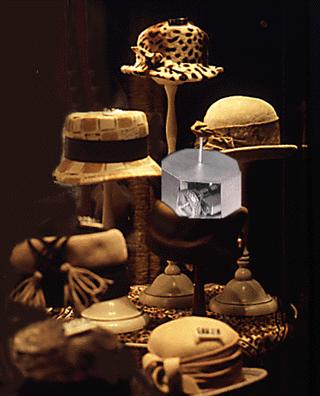
But pure yellow too is lighter than pure, saturated red, or blue. And is this proposition a matter of experience? -- I dont know, for example, whether red (i.e., pure red) is lighter or darker than blue; to be able to say, I would have to see them. And yet, if I had seen them, I would know the answer once and for all, like th e result of an arithmetical calculation.
Aber auch das reine Gelb ist heller als das reine, satte Rot, oder Blau. Und ist dies ein Satz der Erfahrung? - Ich weiS z.B. nicht, ob Rot (d.h. das reine) heller oder dunkler ist als Blau; ich muSte sie sehen, um es sagen zu konnen. Und doch, wennich es gesehen hatte, so wuste ich's nun ein fur alle mal, wie das Resultat einer Rechnung.
Where do we draw the line here between logic and experience?
Wo trennen sich hier Logik und Erfahrung (Empirie)?
My feeling is that blue obliterates yellow, -- but why shouldn't I call a somewhat greenish yellow a "blu
ish yellow" and green an intermediary colour between blue and yellow, and a strongly blush green and somewhat yellowish blue?
Meinum Gefuhl nach loscht Blau das Gelb aus, -- aber warum solte ich nicht ein etwas grunliches Gelb ein "blauliches Gelb" nennen und Grun eine Zwischenfarbe von Blau und Gelb, und ein stark blauliches Grun ein etwas gelbliches Blau?
What advantage would someone have over me who knew a direct route from blue to yellow? And what shows that I don't know such a path? --Does everything depend on my range of possible language-ga
mes with the form "...ish?"
Was hatte Einer vor mir voraus, der ennen direkten Farbenweg zwischen Blau und Gelb kennte? Und wie zeigt es sich, das ich so einen Weg nicht kenne? - Liegt alles an den mir moglichen Sprachspi
elen mit der Form "...lich"?